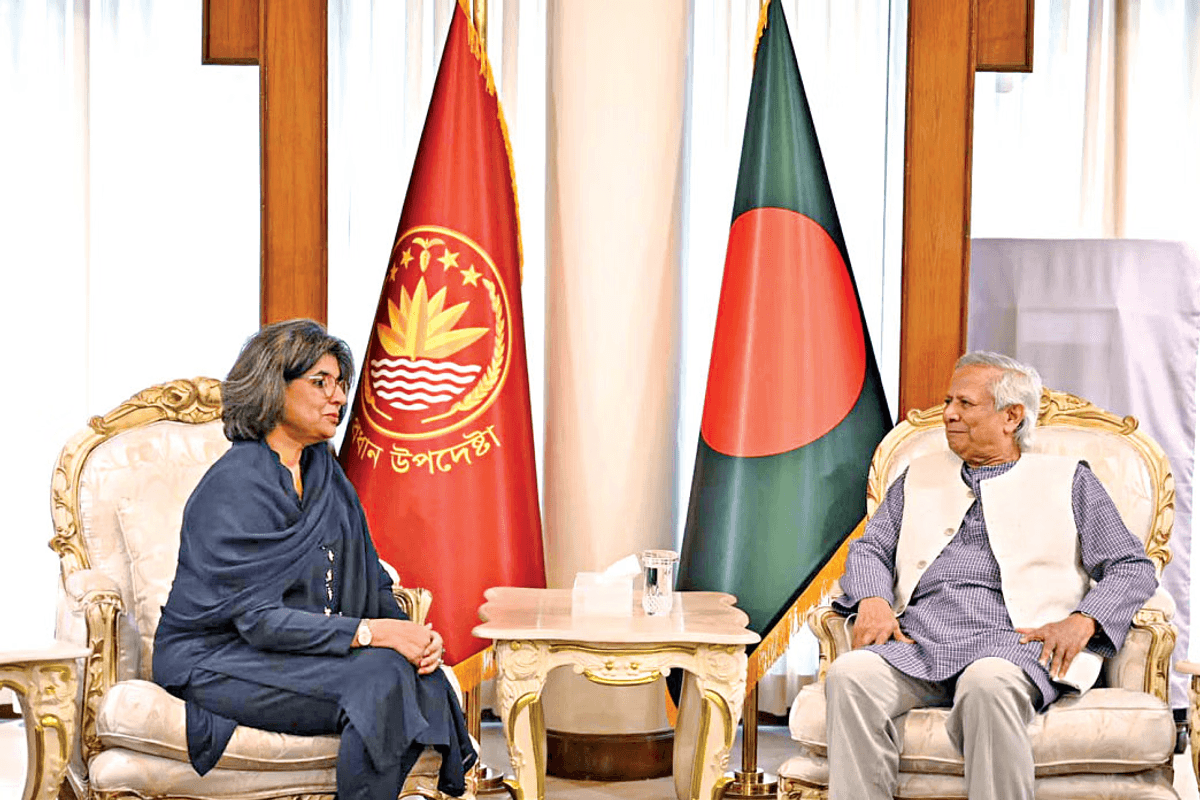As Pakistan faces 1971 reckoning, is history coming full circle?
Have other countries ever truly offered formal apologies or reparations? Yes and no—because it’s complicated

Sidrah Roghay
Senior Producer
Sidrah Roghay is a storyteller at heart, with over a decade of experience in newsrooms across Pakistan, the US, and Turkey

Aamir Abbasi
Editor, Islamabad
Aamir; a journalist with 15 years of experience, working in Newspaper, TV and Digital Media. Worked in Field, covered Big Legal Constitutional and Political Events in Pakistan since 2009 with Pakistan’s Top Media Organizations. Graduate of Quaid I Azam University Islamabad.

It feels surreal—like history has come full circle. Bangladesh has called on Pakistan to apologize for the events of 1971, and this time, Pakistan has acknowledged them.
Foreign secretary-level talks were held in Dhaka on Thursday after a 15-year hiatus — a diplomatic breakthrough of sorts. No small feat, considering the lingering tensions between the two South Asian nations that were once one.
Footage from the closed-door talks suggested a cordial atmosphere. Amna Baloch, who led the Pakistani delegation, appeared relaxed and smiled as she listened.
After the talks, however, Bangladesh's Foreign Secretary Jashim Uddin addressed reporters, saying he raised a series of “long-outstanding historic issues.”
“These issues need to be resolved for having a solid foundation of our relations,” he further said.
Initially, Pakistan issued a statement that completely avoided any mention of 1971. But in a later weekly press briefing, the Foreign Ministry spokesman confirmed that “some outstanding issues were indeed discussed,” quickly adding that “both sides stated their respective position in an environment of mutual understanding and respect.”
Earlier reports in the Bangladeshi media claimed Dhaka would demand $4.52 billion in financial compensation from Pakistan. However, this figure wasn’t confirmed in any official statements from either side.
The Bangladeshi Foreign Ministry did confirm it asked for “the repatriation of stranded Pakistanis, division of assets, transfer of foreign aid that was meant for the cyclone victims of 1970, apology for the genocide committed by the then Pakistan Armed Forces in 1971 and war reparation.”
Why now?
So why is Bangladesh pushing for reparations and a formal apology now, after over 50 years? Is the demand symbolic—or is there a real expectation of action?
“Bangladesh is pushing the demand for a formal apology because we believe that serious crimes against humanity have been committed by the Pakistani military forces in Bangladesh,” Humayun Kabir, Bangladesh's former ambassador to the U.S., told Nukta.
“That needs to be accounted for, time limit does not matter, the issue matters, and a genuine apology could clear the pathway to a normal bilateral relationship between Bangladesh and Pakistan,” he added.
Abdul Basit, Pakistan's former high commissioner to India, told Nukta: “As for the issue of apology or reparations are concerned, I do not find any reference to these issues in the joint statement that was issued after the meeting.”
“If at all these issues were raised by the Bangladeshi side that would perhaps have been done for the former's sake. Unlike Sheikh Hasina's government, the interim set up would not like to make those issues impede the bilateral relationship,” he added.
So is the ice finally melting?
There is hope. Despite major differences, the two sides have agreed to continue talks, with Pakistan's Foreign Minister Ishaq Dar scheduled to visit Dhaka on April 27.
The renewed engagement also comes amid Bangladesh's recent tensions with India over the extradition of its ousted Prime Minister Sheikh Hasina. Hasina, whose rule saw close ties with India, and worsening matters with Pakistan, has sought refuge in New Delhi. And Dhaka is clearly not happy.
Diplomats on both sides seem cautiously optimistic.
“I see several indicators towards warming the ties. First, both sides have started making sincere efforts to build up the relationship … they have identified several areas to work in the future,” said Kabir.
Basit echoed the sentiment. “I see Bangladesh, Pakistan relations moving in the right direction.”
“Even Bangladesh has taken a few steps to remove artificial barriers. We are doing direct trade, air links are being established, issues of visas have been facilitated,” he added.
Real-life examples
So how does history tend to unfold in such cases? Have other countries ever truly offered formal apologies or reparations?
Yes and no—because it’s complicated.
Germany has issued repeated, formal apologies for the Holocaust and other World War II atrocities. Leaders like Willy Brandt and Angela Merkel expressed remorse and backed it up with reparations and remembrance.
The United States has expressed regret over slavery and the Vietnam War, but has never issued a formal apology.
France in 2021 acknowledged its role in the torture and killing of Algerians during the war but stopped short of a full apology.
The UK has recognized injustices like the 1919 Amritsar Massacre in India and the brutal suppression of the Mau Mau Uprising in Kenya, but again, without offering a formal apology.
So, will Pakistan and Bangladesh choose to lead by example? We sincerely hope so — but only time will tell.







Comments
See what people are discussing